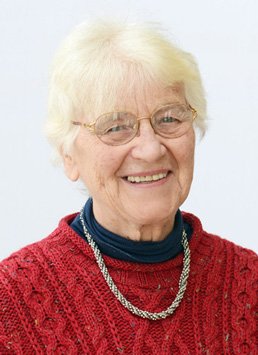Society for the Study of Women Philosophers, Inc.
a non-profit, tax-exempt educational charity 501(c)3 Internal Revenue Code
Ellen Smith Mitchell
1838-1920
Transcendentalism, Feminism, Philosophy of History, Aesthetics
|
Kate Lindemann's Women Philosophers pages |
 |
Remember!! Your purchase of books by clicking on Abe Books or Amazon links through this site earns us a small commission that is used to provide travel scholarships. |
Ellen Rowland Smith Mitchell lived a full life, overcoming scandal to contribute to philosophical thought. She was one of the only early American women philosophers to obtain a university faculty position and she remained active as a lecturer and author until her death at the age of 81.
Chronology
1838 Ellen Rowland Smith) was born in Geddes, a town near Syracuse, New York to Harriet H. Rowland and Edwin Smith.
She went to Homer Academy, currently a private high school but in her time Homer Academy offered a teacher training program in which she participated. During her high school years, she married but by the time of graduation she was either separated or widowed.
1859 She taught in the public schools of Cairo, Illinois. Here she fell in love with Joseph W. Mitchell, a man who has recently separated from his wife.
1865 She left Cairo and went to St. Louis. She pursued a career as a writer, using the pen name of Ella Ellwood. She became a member of the St. Louis Hegelian group, although her name does not appear in any of the group's formal lists.
At that time Joseph Mitchell also moved to St. Louis, apparently to be with Ellen. But Mitchell's first wife followed them and sued for divorce. She charged Joseph Mitchell with abandonment and adultery.
During the trial Ellen Rowland Smith was brought into the case and the local paper, The St, Louis Democrat, published much of the material. She became the focus of the case and both her name and her authorial pen name, "Ella Ellwood," were bandied about in the newspapers. Some have noted that an "Ellen Ellwood" was often published in the rival newspaper, Missouri Republican and so one wonders about motivations.
After John Mitchell's divorce was completed, Ellen again changed the name under which she wrote. Her work was now signed Mrs. Ellen M. Mitchell. She began to publish feminist and philosophical material.
While in St. Louis, the Mitchells were central to the Pen and Pencil group, which often met in their home.
Ellen Mitchell made some presentations before the group and Grace Bibb stated in one of her reviews, published in the Western Review that Mitchell' s presentation on DeQuincey was "one of the most enjoyable of the season".
Ellen Mitchell also led a weekly discussion of philosophy with a group of women. And she later published some articles in the Journal of Speculative Philosophy which was the first philosophy journal published in the United States.
She lectured at the Concord School of Philosophy and her work received favorable newspaper reviews.
1878 The Mitchells moved to Denver, Colorado in hopes of improving John Mitchell's health.
1879 John Mitchell dies. Ellen stays in Denver where she teaches high school and continues to write and lead philosophy discussion group for women.
1882 She becomes an active member of Denver Fortnightly Club, later chairing some committees and presenting papers at this well known and influential group. One of her lecture series was on "The Philosophy of History."
1883 She lectures at the Denver Fortnightly Club about the Philosophy of Art.
1888 She is granted faculty status at the University of Denver.
1889 Political Ethics was the subject of her lectures.
1891 She lectures on Transcendentalism
1893 Phidias and Plato were the subjects of her lectures.
c. 1895 Ellen Mitchell leaves Denver and returns to Syracuse where she lives with her aged mother.
In the ensuing years, she continues to be active and gives frequent lectures. She was by then an elder woman who continued her intellectual work even after age 65. The local newspapers were supportive and she became the object of regional pride.
1920 Ellen Michell dies.
Bibliography
1874 "A Plea for the Fallen Woman," Second World Congress of Women, Chicago.
1884 "A Study of Hegel," World Congress of Women, Baltimore.
1886 "The Philosophy of Pessimism," in The Journal of Speculative Philosophy 20: 187.
1887 "Friendship in Aristotle's Ethics, Concord school of Philosophy; reported in Boston Evening Transcript July 27, 1887.
1888 "The Platonic Dialectic" The Journal of Speculative Philosophy 22:212.
1891. A Study of Greek Philosophy. Chicago: Griggs.
1900 The Hidden Sound of Harmony Chicago, n.p.
Sources: This section is much indebted to Dorothy G. Rogers, America's First Women Philosophers Continnum, 2005 - a work that I believe belongs on the shelf of every philosopher and in the catalog of every college and university library.
To read more about Grace Bibbs, who is mentioned above, see: See: Ellen Mitchell - Grace Bibbs
Society for the Study of Women Philosophers